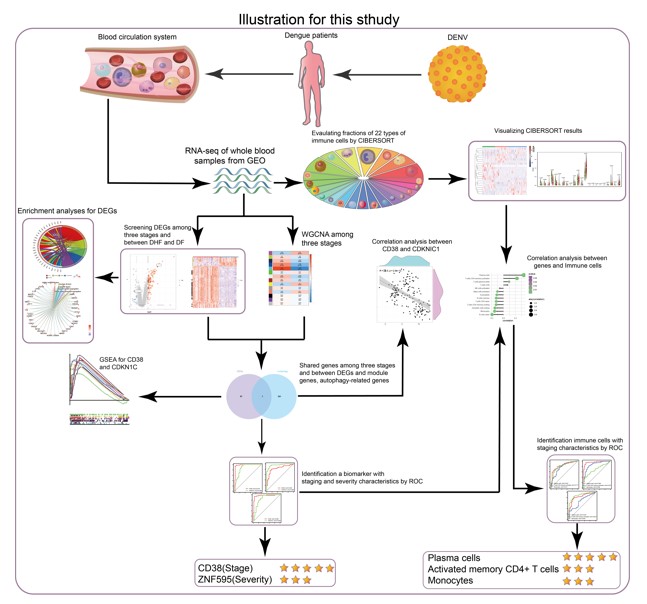At present, there are still no specific therapeutic drugs and appropriate vaccines for Dengue. Therefore, it is very important to explore distinct clinical diagnostic indicators. In this study, we combined differentially expressed genes (DEGs) analysis and weighted co-expression network analysis (WGCNA) to screen a stable and robust biomarker which can be used to distinguish three clinical stages of Dengue and severity of Dengue. CD38 can distinguish excellently Early Acute, Late Acute, Convalescent stages for Dengue patients, and ZNF595 can discriminate DHF from DF in whole acute stages. We also found that three clinical stages can be discriminated based on the fractions of Plasma cells, activated memory CD4+ T cells, and Monocytes. In different clinical stages different immune cells function positively. Negative inhibition of viral replication based on Gene Ontology (GO) enrichment, Kyoto Encyclopedia of Genes and Genomes (KEGG) analysis and Gene set enrichment analysis (GSEA), up-regulated autophagy genes and impairing immune system are potential reasons resulting in dengue hemorrhagic fever (DHF).

